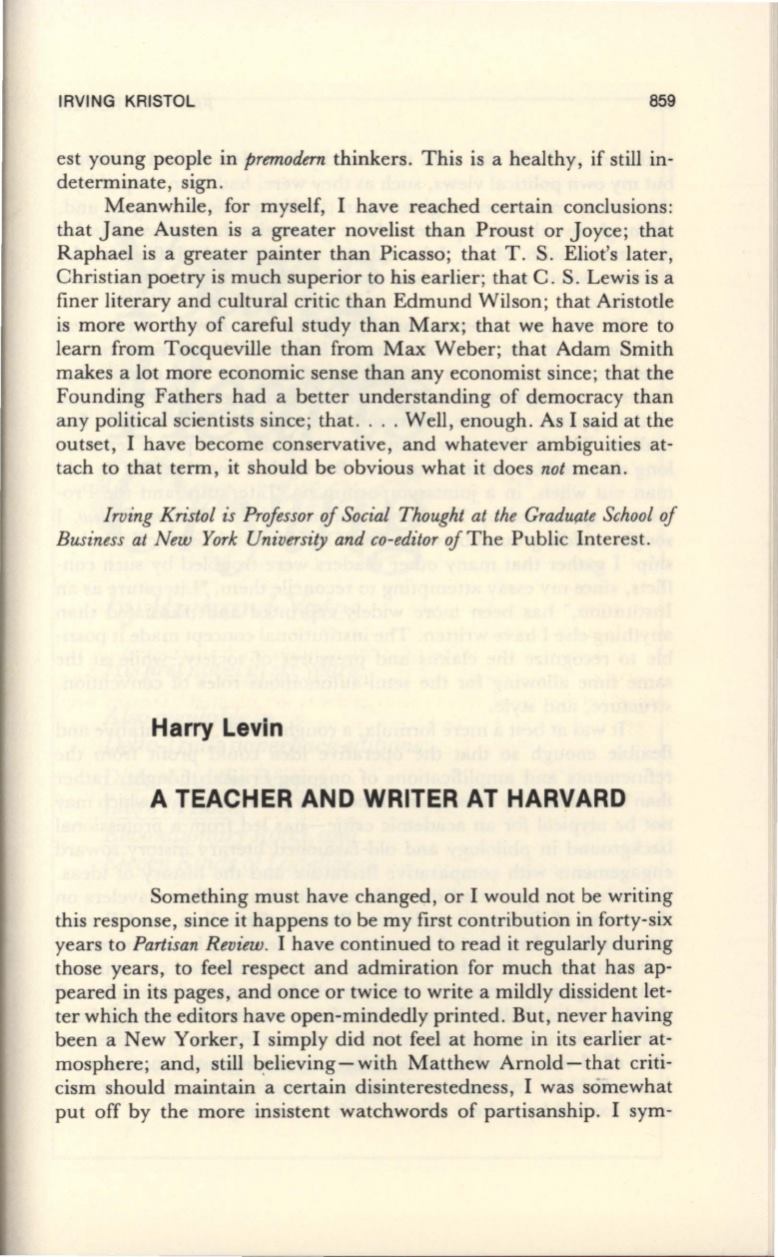
IRVING KRISTOL
859
est young people in
premodern
thinkers. This is a healthy, if still in–
determinate, sign.
Meanwhile, for myself, I have reached certain conclusions:
that Jane Austen is a greater novelist than Proust or Joyce; that
Raphael is a greater painter than Picasso; that T. S. Eliot's later,
Christian poetry is much superior to his earlier; that C. S. Lewis is a
finer literary and cultural critic than Edmund Wilson; that Aristotle
is more worthy of careful study than Marx; that we have more to
learn from Tocqueville than from Max Weber; that Adam Smith
makes a lot more economic sense than any economist since; that the
Founding Fathers had a better understanding of democracy than
any political scientists since; that. ... Well, enough. As I said at the
outset, I have become conservative, and whatever ambiguities at–
tach to that term, it should be obvious what it does
not
mean.
Irving Kristol is Professor
of
Social Thought at the Gradu(lte School of
Business at New York University and co-editor of
The Public Interest.
Harry Levin
A TEACHER AND WRITER AT HARVARD
Something must have changed, or I would not be writing
this response, since it happens to be my first contribution in forty-six
years to
Partisan Review.
I have continued to read it regularly during
those years, to feel respect and admiration for much that has ap–
peared in its pages, and once or twice to write a mildly dissident let–
ter which the editors have open-mindedly printed. But, never having
been a New Yorker, I simply did not feel at home in its earlier at–
mosphere; and, still
~elieving-
with Matthew Arnold- that criti–
cism should maintain a certain disinterestedness, I was somewhat
put off by the more insistent watchwords of partisanship. I sym-


